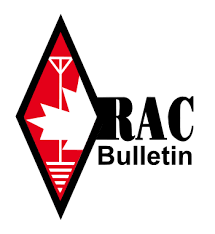RAC Ontario Sections Bulletin for August 10, 2024
Official Bulletin Station for Radio Amateurs of Canada with this week’s bulletin.
NATIONAL/INTERNATIONAL NEWS
ONTARIO SECTION NEWS
ITEMS OF INTEREST
- SUNSPOT COUNTS HIT A 23-YEAR HIGH
The sun is partying like it’s 2001. That’s the last time sunspot counts were as high
as they are now. The monthly average sunspot number for July 2024 was 196.5,
according to the Royal Observatory of Belgium’s Solar Influences Data Analysis
Center. This eclipses every month since Dec. 2001:
Solar Cycle 25 wasn’t expected to be this strong. When it began in Dec. 2019,
experts predicted it would be a weak cycle like its immediate predecessor.
If that forecast had panned out, Solar Cycle 25 would be one of the weakest
solar cycles in a century. Instead, Solar Cycle 25 has shot past Solar Cycle 24
and may be on pace to rival some of the stronger cycles of the 20th century.
Is this Solar Max? The jury is still out. Sunspot numbers may continue to rise
in the months ahead and, based on the behavior of previous cycles, we can
confidently expect high solar activity for at least 2 to 3 more years. Stay tuned!
— spaceweather.com (Aug 3rd edition)
- International Dog Day Special Event Stations
Highlight Need for Rescue Efforts
International Dog Day is August 26th. Hams are hoping to spotlight the need
for rescue, assistance, adoption and donation around the world. Visit the
website dogdayradio.org for details, or see the QRZ.com page of YL1DOG.
Look for other “DOG” callsigns for the special event stations.
— Caryn, KD2GUT (via hamweekly.com)
- FCC Approves Satellites for Cellular Broadband
The FCC has approved the launch of a low-earth orbit communications array of
five satellites on V-band that is expected to open the door for US smartphones
to make use of space-based cellular broadband services. The satellites have
been given the OK to operate in the 37.5 to 42 GHz range for space-to-Earth
communications; and the ranges of 47.2 to 50.2 GHz and 50.4 to 51.4 GHz
for Earth to space communications.
The approvals are granted to Texas-based AST Space Mobile for what the
company is characterizing as the largest communications array in history
in low-earth orbit.
— FCC, YAHOO/FINANCE (via amateur radio newsline)
- W1AW to QSY on 17 Meters for CW
Beginning on Friday, September 6, 2024, Maxim Memorial Station W1AW
will begin using a new 17-meter frequency for its scheduled CW transmissions
due to increased activity near the current bulletin frequency. In order to reduce
the possibility of interference, W1AW will move to 18077.5 kHz.
— ARRL news
This concludes this week’s bulletin.
Bulletin sent from Official Bulletin Manager VA3PC

